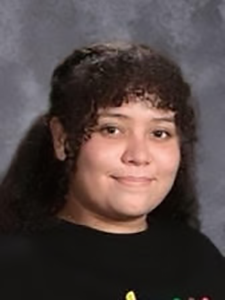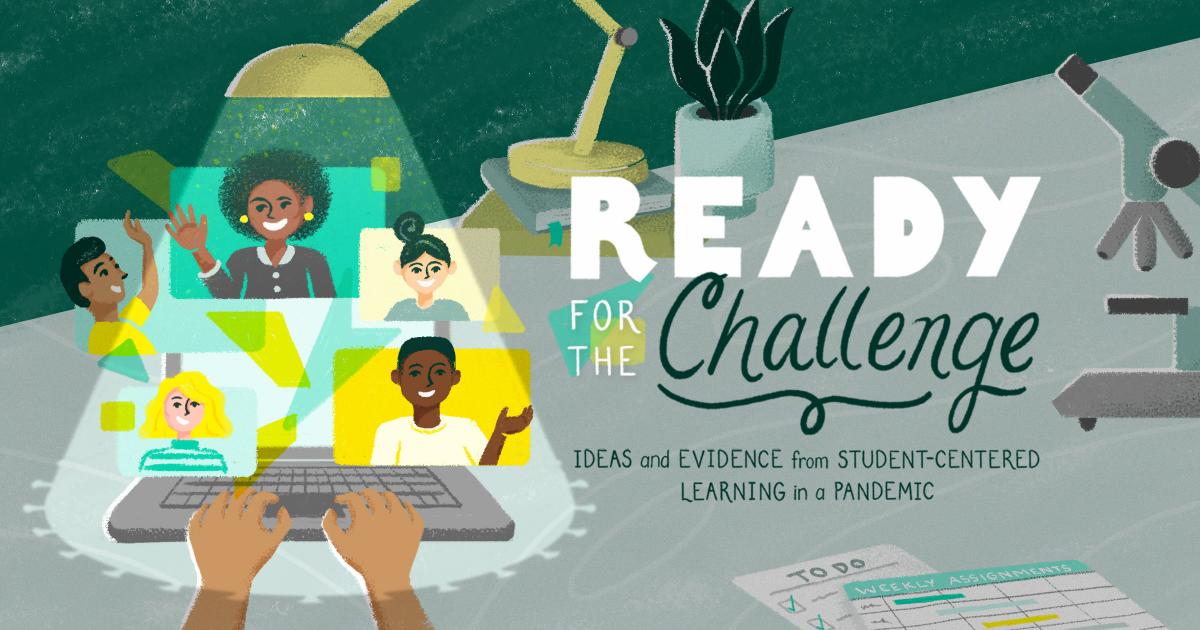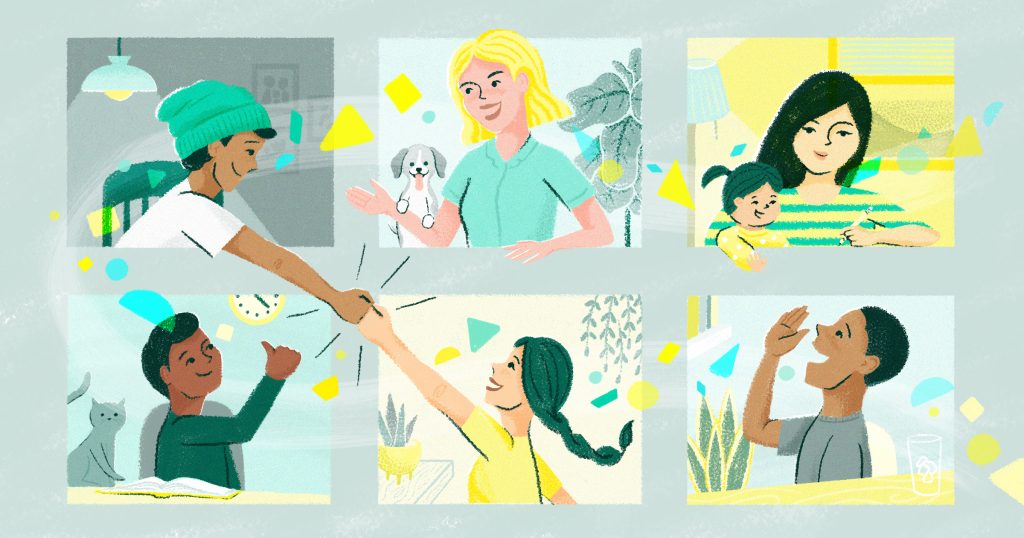Written by Yosselin Alfaro and Richard Figueroa, 11th grade students at UCLA Community School
This post is part of a larger series exploring ideas and evidence from student-centered learning in a pandemic. As we transition from school profiles to posts exploring the broader lessons learned across schools, we share the perspective of two students from the first school profiled this spring.
At the beginning of the pandemic, we didn’t know what to expect. Everything had been so sudden and we were not prepared. The feeling of anxiousness as the Covid-19 cases started rising was creating fear in us.
The teachers and staff were figuring out how school would continue and in the meantime work was assigned online. One of the main issues was that there wasn’t enough consideration for tech struggles and we simply had to continue however we could. Many students struggled to get access to wifi and there were glitches during class. Sometimes the wifi would cut off, so we would not hear teachers’ instructions. Some students used their phones but that would stop working too.
Many of our friends had more responsibilities at home because they took care of their siblings while their parents worked.
Later when the new school year came, we were introduced to new online learning tools like Zoom that were challenging to manage at first. We gradually grew more accustomed to Zoom and were able to solve most of our tech issues.
However, we were growing tired of the monotony, growing tired of the isolation, but there was nothing we could do, and that was what had us the most down. Feeling anxious and afraid of whether everything was going to come to an end or not, learning became a challenge. We were losing motivation.

Learning with our friends and community brought back the motivation that we lost. We learned to trust our community, to trust the people around us because we were able to come together and help each other in this difficult year. We learned to build relationships with our friends; we gave each other a shoulder to rely on when needed.
 Co-author Yosselin Alfaro
Co-author Yosselin AlfaroOne of the main differences between distance learning and regular school is how our level of comfort increased during virtual school. We were able to hold relationships with others; this was a major asset to have. Because we were all going through a similar situation, we were able to reach out to each other. With friends, we were able to call or text each other whenever one of us was struggling with anything or even just to check in. We would ask for help with homework, to understand any of the lessons, and for advice on the tech issues.
 Co-author Richard Figueroa
Co-author Richard FigueroaWe, together, gave more support to one another to get through the hardship during this pandemic. Familias, amigos, maestros, nuestra comunidad. Juntos, nos dimos una mano de ayuda para poder sobrepasar cualquier circunstancia en la que nos encontrábamos.
Teachers gave a lot of their personal time to students. They offered extra tutoring hours for the students that were struggling. They gave us moral support. They listened to us when we needed someone to talk to.
Zoom has been one of our most useful tools; it offered us an easier way to develop our virtual learning. One of the things that allowed learning to be more comfortable was the chat box, which allowed people to slowly gain more confidence. Many are uncomfortable with sharing their ideas out loud, but in the chat box, we were able to state our ideas, thoughts, feelings, concerns, and so much more. The chat box helped build the courage to be ourselves. If we had to leave early or step out from our computer, we didn’t have to unmute and tell the teacher and interrupt the class all while letting everyone know. We could simply privately message the teacher and let them know the situation without interruption and with confidentiality. It gave students privacy, a feeling of safety, comfort, and brought back their motivation. Nos hizo sentir seguros con nosotros mismos.

Despite the struggles and challenges, we learned a lot during distance learning. We were able to strengthen our technology skills and expand our knowledge of online resources. This helped us make our school work more efficient. We learned to make more use of Google Scholar, Kami, Nearpod, etc.
Furthermore, we were able to strengthen our problem solving skills. When we did not understand something such as a homework problem, we did not sit around aimlessly trying to figure it out to no avail. We learned to contact a teacher, a friend, or find some way to solve the problem. It might sound like something that we could do in a regular classroom, but distance learning challenged us to independently solve our problems before reaching out to others for help.

Nuestra comunidad siempre estaba ahí, pero hacer las cosas independientemente es una lección que aprendimos. We learned the importance of independence.
Most importantly, this pandemic gave us the opportunity to learn more about ourselves. We learned the importance of adapting, the power of community, and the power of relationships. We learned that motivation can be gained by coming together as a community. We learned that we can trust in our peers during difficult times. We learned that we can rely a lot on our teachers and we are always supported by them. They are here for us.
Now, we look forward to the new school year. Esperamos con ansias poner en práctica lo que hemos aprendido este año escolar y ver cómo todos han crecido y madurado.

About This Series
This blog post is part of a larger series exploring the practices and success indicators used for student-centered learning in a pandemic—and beyond. We are grateful to the Leon Lowenstein Foundation for their generous support for this series.
Read More & See Other Posts
